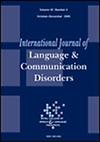Turkish Version of the Video-Naming Test for Assessing Verb Anomia (DVAQ-30): Normative Data for the Adult Turkish Population and Validation Study in Mild Cognitive Impairment and Alzheimer's Disease
Abstract
Objective
Compared to nouns, the impairment of the capacity of retrieving verbs in spoken production is much less documented. In the clinical field, there are also very few tests that have been developed specifically for verb anomia. Clinicians and researchers lack a concise and practical naming test to assess verb anomia, a condition that can occur in adults and the elderly due to various factors. The aim of this study was to adapt the Quebec Action Video Naming Test-30 items (DVAQ-30) into Turkish, establish its validity and develop normative data adapted to the Turkish population.
Method
This research consists of three studies. In Study 1, the DVAQ-30 was linguistically and culturally adapted to the Turkish language, resulting in the DVAQ-TR. In Study 2, a group of adults and older Turkish-speaking people were assessed with the DVAQ-TR to obtain normative data. In Study 3, the psychometric properties of the DVAQ-TR (known-group discriminant validity and convergent validity) were investigated by comparing the performance of healthy individuals and patients with mild cognitive impairment (MCI) or with Alzheimer's disease (AD).
Results
Normative data were obtained based on the performance of 424 participants aged between 18 and 81 years. The percentiles were stratified according to the sociodemographic influencing variables of age, sex and level of education. The DVAQ-TR had good convergent validity and distinguished the performance of healthy participants from that of participants with MCI or AD.
Conclusions
The DVAQ-TR fills an important gap and has the capacity to assist clinicians and researchers in more accurately identifying acquired verb anomia, including in people with MCI or AD.
WHAT THIS PAPER ADDS
- Verb anomia is a frequent symptom in various neurocognitive disorders, yet it remains under-assessed in clinical settings, especially compared to noun naming. Existing tools in Turkish primarily focus on object naming and often rely on static images, which may not effectively capture action concepts. Recent studies suggest that video-based assessments provide a more ecologically valid approach to verb naming evaluation.
- This study presents the Turkish adaptation and validation of the DVAQ-30, a video-based verb naming test, offering culturally and linguistically appropriate normative data for Turkish-speaking adults and elderly individuals. It also demonstrates that the DVAQ-TR successfully differentiates between healthy controls and individuals with MCI or Alzheimer's disease and shows good convergent validity with the Boston Naming Test. These findings highlight the clinical utility of the DVAQ-TR in detecting verb anomia in Turkish-speaking populations.
- The DVAQ-TR provides clinicians with a quick, valid, and culturally sensitive tool for assessing verb anomia in adults with suspected neurocognitive impairments. It enhances diagnostic accuracy and may inform tailored language intervention strategies in individuals with MCI and Alzheimer's disease. The availability of Turkish normative data ensures accurate interpretation of test results across different age, sex, and education groups.

 求助内容:
求助内容: 应助结果提醒方式:
应助结果提醒方式:


